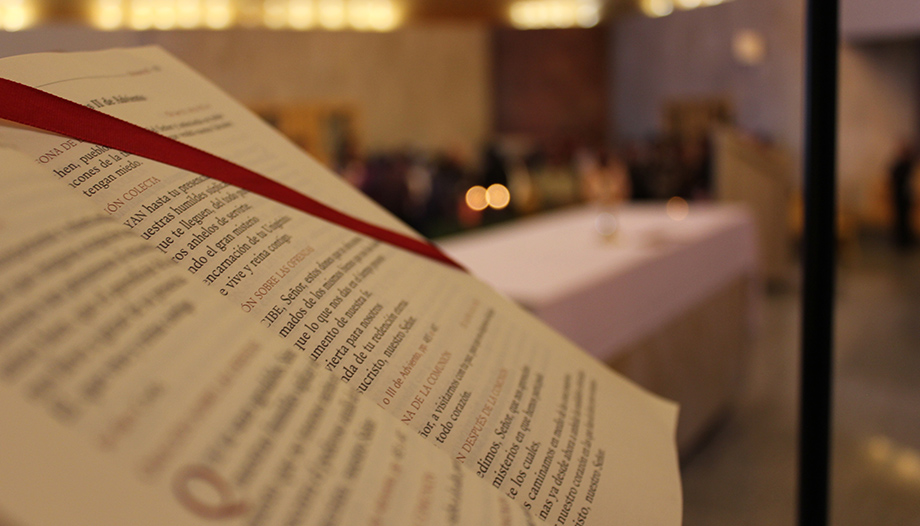The Gospel of Matthew, written primarily to evangelize the Jews, presents Jesus as the new and great Moses. Moses had been the great savior and lawgiver of Israel, God's instrument to lead them out of slavery, who received a special law from God on Mount Sinai. But Jesus is a greater Savior because he is God himself, and not only receives a law from God, but gives a new law as God himself.
Matthew shows Jesus ascending a mountain, as Moses ascended Sinai. Being himself the lawgiver, Jesus sits down. And while Moses listens, Jesus speaks. Then, to begin his Sermon on the Mount, and as the spiritual summit of the mountain, Jesus gives us the beatitudes. The beatitudes (from the Latin "beati") are the ways to receive God's blessings and, ultimately, to share his blessing in heaven. They are the blueprint for holiness. Seemingly simple, the more you consider them, the more demanding they seem.
Holiness begins with poverty of spirit. This is the door to the other beatitudes, because we only begin to receive God's blessings when we appreciate our absolute need for them. A rich person thinks he does not need God. Then comes meekness, which has nothing to do with weakness. Moses, "a very humble man, more than anyone else on the face of the earth." (Num 12:3), led his people to the Promised Land. Then Jesus says: "Blessed are those who mourn." those who are not content with this earth, those who bitterly lament the evil and make amends for it.
The next beatitude is "to hunger and thirst for righteousness", which has a double meaning: to seek personal holiness, to be a righteous man, as a man of righteousness. St. Joseph (cf. Mt 1:19), but also social justice. Indeed, one thing leads to the other: we want God's law to be fulfilled in our own lives and in society. Holiness is never a form of evasion, but leads us to transform the world around us, to make it more like God wants it to be.
Then comes the call to live mercy. We cannot expect to receive it if we do not practice it with others. We will never enjoy beatitude if we are not able to sympathize with and forgive others. A blessed heart is not a hard heart.
"Blessed are the pure in heart, for they shall see God." Lust and deceit blind us to God. Only a pure heart is capable of love, and holiness is loving God and others. Next comes: "Blessed are the peacemakers, for they shall be called children of God." How difficult it is to promote peace; but the more we do it, the more peace there is in our soul, the more we will be children of God.
The last beatitude is like the conclusion of the others: we are blessed when we encounter persecution, because this will lead us to heaven. A life of holiness provokes the wrath of Satan, and we must reckon with his attacks. But if we stand firm, our "reward will be great in heaven".
Homily on the readings of Sunday, 4th Sunday in Ordinary Time (A)
The priest Luis Herrera Campo offers its nanomiliaA short one-minute reflection for this Sunday's readings.








